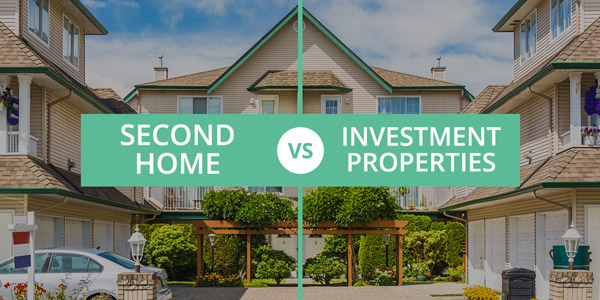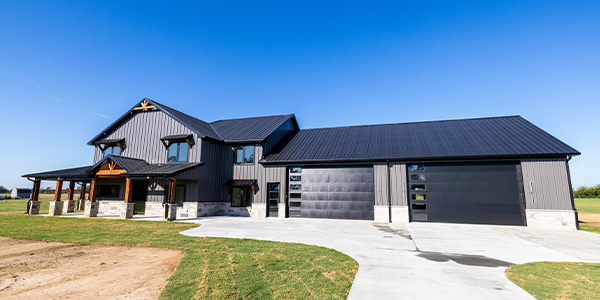Homebuyers
Mortgage Differences with Second Home vs. Investment Property
September 23, 2020
When buying a home, one of the main questions your lender will ask is whether the property will be a primary residence, a second home, or an investment property. If the answer is either a second home or an investment property, there are several factors to consider, namely that the lending rules are different from a primary residence.
Moreover, the lending rules for second homes differ from investment properties. Each occupancy type has its own rules and guidelines, which are discussed in more detail below.
What is the definition of a second home?
Despite its name, a second home is not necessarily the “second” house you buy. That may be the case, but in the eyes of lenders and investors, a “second home” is the term used for what is more commonly thought of as a “vacation home.” Put another way, how you plan to live in the home will determine if it’s classified as a “second home” or not.
A property will be categorized as a second home if the following conditions are met:
- The borrower must live in the home for some part of the year
- The home must be able to be occupied year-round
- The borrower must be the only one in control of the property
- The home must be a one-unit property, meaning it must be a single-family house or condo
- The home may not be used as a rental property, subject to a timeshare agreement, or managed by a third party
Beyond that, typically, the second home must be located at least 50 miles away from the borrower’s primary residence.
What is the definition of an investment property?
Unlike a second home, the term “investment property” is just what it means: a property purchased as an investment. An investment property is a home that the borrower does not occupy. Rather, the borrower uses the home as a source of income, either through renting it out on a long-term or short-term basis or flipping the property for profit.
A property will be considered an investment property if:
- The borrower does not and will not reside in the property
- The property will be used to generate income through rent or lease
- The borrower is flipping the property for a profit
Generally, if the home is within 50 miles of the borrower’s primary residence, it will be considered an investment home. Additionally, homes purchased for use as short-term rentals through services like Airbnb will be categorized as investment property.
What are the mortgage differences between a second home and an investment property?
First and foremost, lenders treat both second homes and investment properties differently from primary residences. Case in point, mortgages for second homes and investment properties will most likely carry a higher interest rate than a primary residence.
Mortgage rates
Since these properties aren’t the place where borrowers live, lenders and investors consider second homes and investment properties to be riskier than primary residences. When facing financial hardship, a borrower is more likely to default on the mortgage of a second home or investment property rather than their primary home. That risk leads to higher interest rates on second homes and investment properties compared to primary residences.
But the interest rate difference isn’t the same for investment properties and second homes. Borrowers buying an investment home will pay an even higher interest rate than those buying a second home.
Down payment
Additionally, the credit standards for second homes and investment properties are likely to be more rigorous than a primary residence. That means a borrower will likely have to provide a larger down payment for either a second home or an investment property compared to a primary residence.
For a second home, a borrower may be required to put down at least 10% of the home’s value.
Meanwhile, on an investment property, a borrower may be required to put down at least 20%.
Income and assets
Beyond that, lenders will require a borrower who wants to buy a second home or investment property to have income to support the payments and may require the borrower to have cash on hand to cover several months of mortgage payments.
One plus for buying an investment property is that a borrower may be able to use expected rental income from the property when qualifying for the mortgage.
Be honest with your lender about how you plan to use the property
Borrowers may be tempted to say the property they are buying is a second home rather than an investment property to get a lower interest rate. However, misleading a lender in that way could be considered bank fraud.
Borrowers who are dishonest in the application process could be subject to prosecution or penalties, including requiring the borrower to immediately repay the loan in full and/or foreclose on the property.
Tax Benefits
Owning a second home or an investment property can offer certain tax advantages*. Deductions for additional mortgage interest, maintenance costs, and property taxes can make buying a second home or investment property a much more attractive option.
If you're thinking about buying a second home or investment property, reach out to our team of mortgage professionals today.
*Consult your tax advisor.






 Smart Moves Start Here.
Smart Moves Start Here.